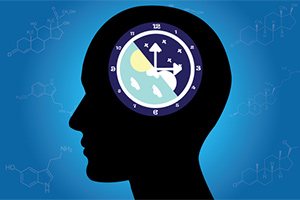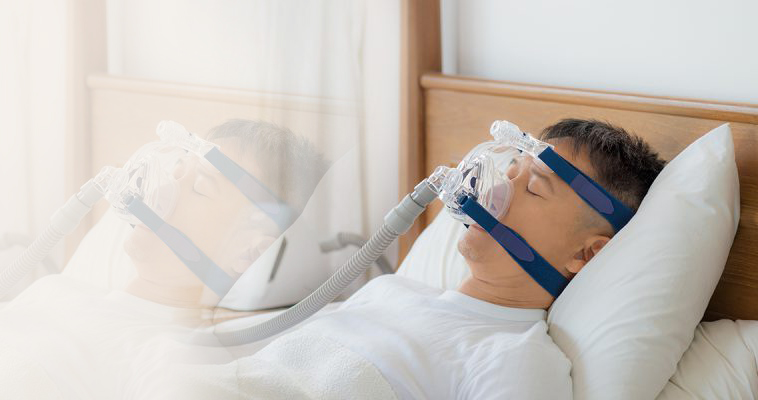Advanced Sleep Therapy - Accomplish Deep, Restful Sleep
Advanced Sleep Therapy - Accomplish Deep, Restful Sleep
Blog Article
Efficient Treatment Solutions for Handling Sleep Disorders and Enhancing Peaceful Sleep
In the world of health care, the administration of sleep disorders and the quest for relaxed sleep are crucial components of overall health. As we navigate the elaborate landscape of rest problems and seek to enhance our sleep experience, a deeper understanding of these treatment solutions might hold the secret to opening an extra rejuvenating and satisfying corrective journey.
Cognitive Behavioral Treatment for Sleeplessness (CBT-I)
Cognitive Behavior Therapy for Sleep Problems (CBT-I) is an organized, evidence-based therapy method that concentrates on addressing the hidden elements adding to sleep disturbances. This type of therapy aims to customize behaviors and ideas that exacerbate sleeping disorders, inevitably advertising healthy rest patterns. CBT-I normally includes a number of vital components, including cognitive therapy, rest constraint, stimulus control, and rest health education and learning.
Cognitive treatment assists people recognize and transform unfavorable idea patterns and beliefs regarding sleep that might be hindering their capacity to drop or stay asleep. Sleep limitation includes restricting the quantity of time spent in bed to match the individual's actual sleep period, thereby boosting sleep efficiency (insomnia therapy). Stimulus control methods assist develop a strong association in between the bed and sleep by motivating individuals to go to bed just when sleepy and to prevent participating in promoting tasks in bed
Moreover, sleep health education and learning focuses on developing healthy and balanced rest practices, such as maintaining a constant rest schedule, producing a relaxing bedtime regimen, and enhancing the sleep setting. By attending to these aspects thoroughly, CBT-I supplies a reliable non-pharmacological intervention for handling insomnia and improving overall rest top quality.
Sleep Health Practices
Having actually established the structure of cognitive restructuring and behavioral modifications in dealing with sleep problems through Cognitive Behavioral Therapy for Insomnia (CBT-I), the focus currently changes towards discovering essential Sleep Hygiene Practices for keeping optimum sleep top quality and overall well-being.
Rest health practices incorporate a variety of routines and environmental elements that can significantly affect one's capability to sleep and stay asleep throughout the night. Consistent rest and wake times, producing a relaxing going to bed regimen, and enhancing the rest environment by keeping it dark, silent, and cool are critical components of excellent rest hygiene. Restricting exposure to screens prior to bedtime, avoiding energizers like caffeine close to going to bed, and participating in regular physical activity throughout the day can also advertise far better rest high quality.
Additionally, exercising relaxation techniques such as deep breathing workouts or meditation before bed can help calm the mind and prepare the body for rest. By incorporating these rest hygiene practices right into one's everyday regimen, individuals can develop a healthy rest pattern that sustains peaceful sleep and overall well-being.
Leisure Methods and Mindfulness
Carrying out leisure strategies and mindfulness methods can play a pivotal role in cultivating a feeling of tranquility and advertising high quality sleep. In addition, led images can help carry individuals to a serene area in their minds, helping in stress reduction and improving rest top quality.
By including these techniques into a going to bed regimen, people can indicate to their bodies browse around here that it is time to take a break and prepare for sleep. Generally, integrating leisure strategies and mindfulness methods can considerably contribute to handling sleep disorders and improving general sleep top quality.

Medicine Options for Sleep Disorders
After exploring relaxation methods and mindfulness methods as non-pharmacological interventions for improving sleep quality, it is vital to think about medication choices for individuals with sleep problems. In cases where way of life modifications and treatment do not provide sufficient relief, medicine can be a useful device in taking care of sleep disturbances.
Commonly prescribed medications for sleep problems include benzodiazepines, non-benzodiazepine hypnotics, antidepressants, and melatonin receptor agonists. Benzodiazepines, such as diazepam, are sedatives that can aid cause sleep, but they are normally suggested for short-term use due to the threat of dependence. Non-benzodiazepine hypnotics like zolpidem are additionally utilized to treat sleep problems and have a reduced danger of reliance contrasted to benzodiazepines. Antidepressants, such as trazodone, can be useful for individuals with co-occurring clinical depression and sleep disturbances. Melatonin receptor agonists, like ramelteon, target the body's all-natural sleep-wake cycle and can be practical for managing rest patterns.
It is important for individuals to seek advice from a medical care supplier to figure out the most appropriate drug next choice based on their specific rest disorder and clinical background.
Light Treatment for Circadian Rhythm Law
Light therapy, additionally called phototherapy, is a non-invasive therapy method used to manage circadian rhythms and boost sleep-wake cycles. This therapy involves direct exposure to bright light that resembles natural sunshine, which helps to reset the body's biological rhythm. By subjecting people to certain wavelengths of light, typically in the morning or night depending on the desired effect, light therapy can successfully adjust the body clock to promote wakefulness throughout the day and improve relaxed rest during the night.
Research study has actually revealed that light therapy can be specifically useful for people with body clock problems, such as delayed sleep phase disorder or jet lag. It can additionally be valuable for those experiencing seasonal affective disorder (SAD), a kind of anxiety that commonly occurs throughout the cold weather when natural light direct exposure is reduced. Light therapy is normally well-tolerated and can be utilized together with other therapy approaches for rest problems to maximize outcomes and improve snoring in sleep overall rest quality.
Verdict
To conclude, efficient treatment solutions for handling sleep disorders and enhancing relaxing sleep consist of Cognitive Behavioral Treatment for Sleeping Disorders (CBT-I), sleep health techniques, relaxation methods and mindfulness, medication options, and light therapy for body clock regulation. These approaches can assist individuals enhance their rest quality and general health. It is vital to speak with a medical care copyright to establish one of the most appropriate technique for dealing with sleep concerns.
As we navigate the elaborate landscape of rest conditions and seek to improve our sleep experience, a much deeper understanding of these therapy options may hold the trick to unlocking an extra relaxing and satisfying restorative journey.
Sleep restriction entails limiting the quantity of time spent in bed to match the person's actual rest duration, therefore raising rest efficiency. Constant rest and wake times, developing a relaxing going to bed routine, and maximizing the sleep setting by maintaining it dark, silent, and cool are critical components of great rest health. Light treatment is typically well-tolerated and can be utilized in combination with other therapy approaches for sleep problems to optimize outcomes and boost general sleep high quality.

Report this page